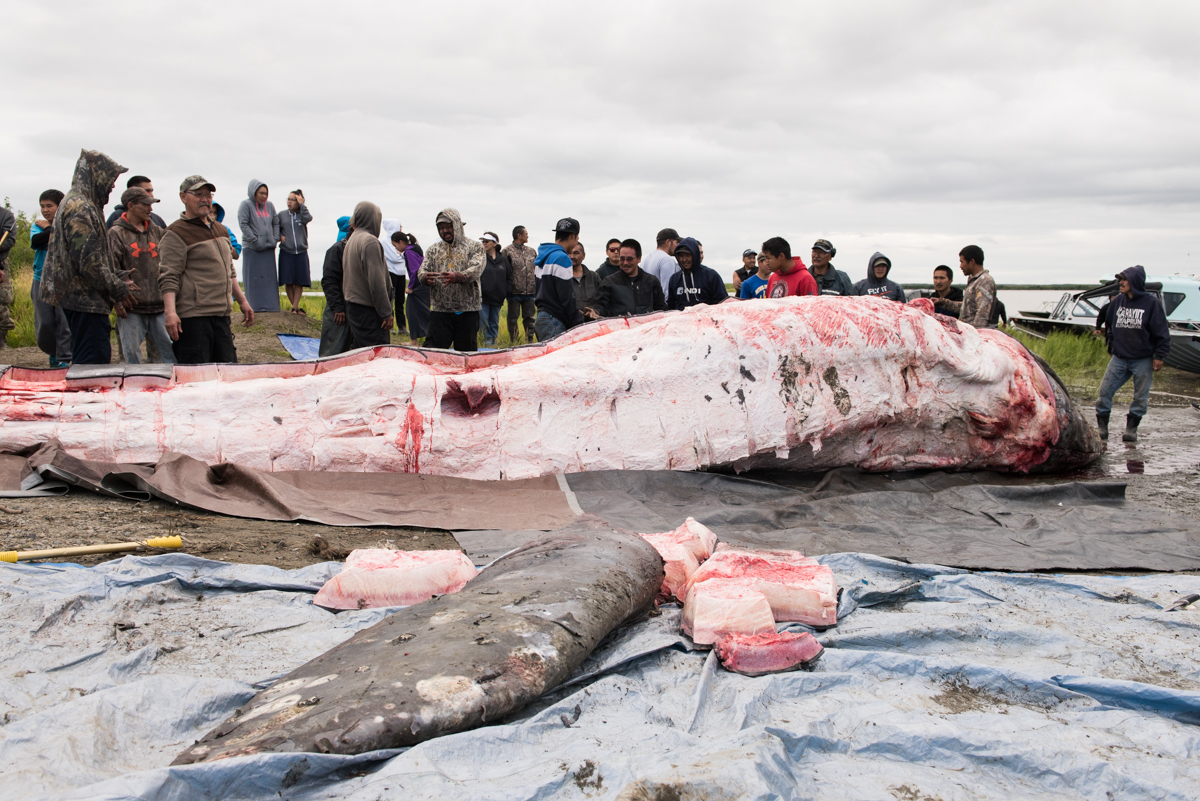An animal hunted in Alaska’s Kuskokwim River has been identified as a protected gray whale

BETHEL — A whale hunted and killed on the Kuskokwim River last week was identified by federal authorities Monday as a large gray whale.
A National Oceanic and Atmospheric Administration biologist in Juneau identified it through a photo, said NOAA spokeswoman Julie Speegle.
Gray whales are protected and may not be hunted by anyone in Alaska. NOAA is investigating the shooting of the animal in the river near the village of Napaskiak. It had traveled some 60 miles into the river from the Bering Sea.
Some local residents said they had originally thought it was a much smaller beluga whale, which can be hunted by Alaska Natives under federal law.
Gray whales are sometimes called California gray whales and are the object of wide-scale whale watching off the coasts of California and Mexico’s Baja California. The population of gray whales in the eastern part of the North Pacific Ocean — including the Bering Sea — is considered healthy and as of 1994, was no longer considered endangered, according to NOAA. But in the Atlantic Ocean, gray whales are extinct. In the western part of the North Pacific, off the coast of Asia, they are “critically endangered,” according to NOAA.
No Native communities in Alaska have authority to hunt gray whales. The only legal hunts of large whales in U.S. waters are those by 11 northern Alaska communities that have permission to hunt bowhead whales.
The International Whaling Commission set a quota for Native people in Washington state and Chukotka in the Russian Far East to take limited numbers of gray whales. But unlike the situation with bowheads and Alaska whaling communities, the federal government doesn’t have an agreement with the Makah tribe in Washington state to allow hunts of gray whale, Speegle said.
The matter has been in court for years. When a group of Makah tribal members hunted a gray whale anyway in 2007, tribal leaders and Washington’s governor condemned it.
Gray whales have among the longest migration paths of any mammal, making a 9,000-plus-mile round trip every year from summer feeding grounds in the Chukchi, Beaufort and Bering seas to wintering areas mainly off the Baja California Peninsula.
In 1988, three gray whales that became trapped in pack ice near Point Barrow in Alaska became the subject of an international rescue effort and eventually the movie “Big Miracle.”